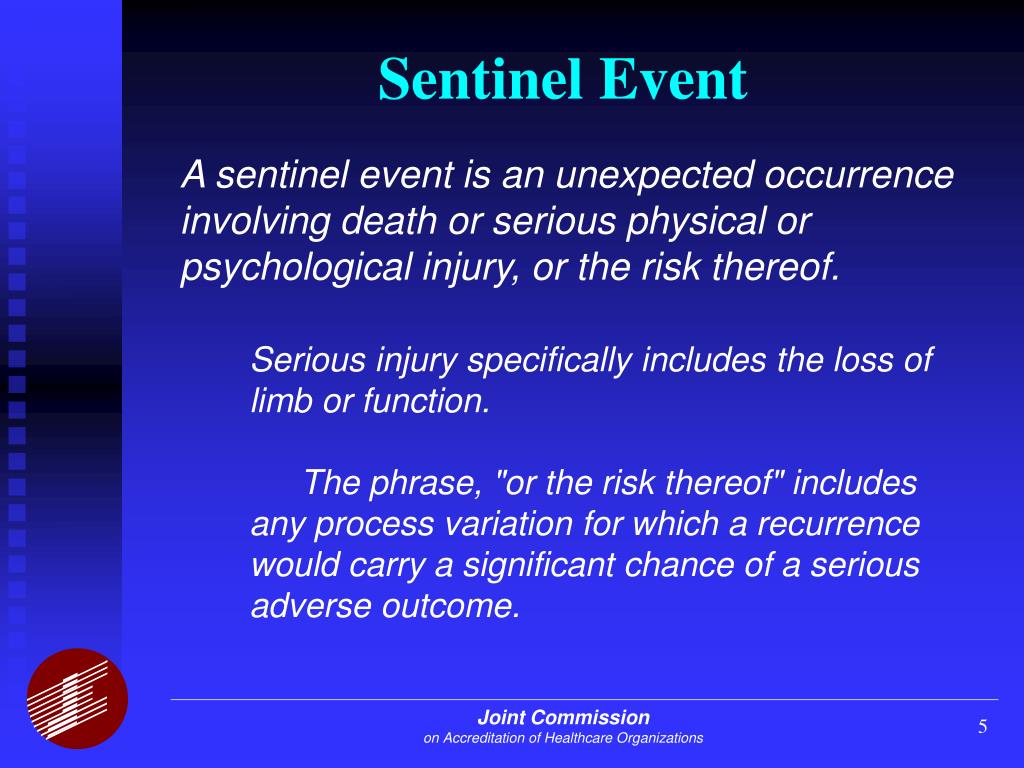

The Joint Commission works closely with its organizations to address sentinel events and to prevent these types of events from occurring in the first place. What is a sentinel event in medicine?Ī sentinel event is a patient safety event that results in death, permanent harm, or severe temporary harm. The risk of suicide is the highest immediately following hospitalization, during the inpatient stay, or immediately post-discharge. They are followed by suicide, delay in treatment, and medication errors. The most common sentinel events are wrong-site surgery, foreign body retention, and falls.

The culture at KAMC encourages and rewards the reporting of errors, and nearly 3000 ADEs were reported in 2018 alone. The present study describes the investigation of a relatively small number of ADEs that caused harm in a single center. Thus, on January 7, 2020, a median of three recommendations had been implemented after each mini-RCA 2 (range, 0–6) and 18 recommendations were still pending. After extensive discussion, two of the recommendations (5%) were ultimately rejected by the stake holders and the higher administration. Of eight recommendations (19%) that should have been implemented within 6 to 12 months (long term), two (25%) had been. Of 12 recommendations (29%) that should have been implemented within 3 to 6 months (intermediate term), four (33%) had been. Of 22 recommendations (52%) that should have been implemented within 1–3 months (short term), 16 (73%) had been.

The time scale within which each recommendation should have been implemented was defined by the team conducting each mini-RCA 2. Of the 42 recommendations made following the mini-RCA 2, 22 (52%) had been implemented by January 7, 2020. Several recommendations were made after each mini-RCA 2 (median, 6 range, 2–10).

The recommendations made after each mini-RCA 2 and their stage of implementation on January 7, 2020, are shown in Tables 3– 5.


 0 kommentar(er)
0 kommentar(er)
